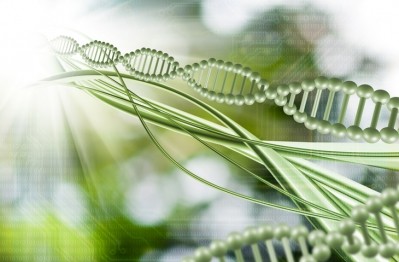The future of EU agriculture: 14 key recommendations unveiled

As the publication highlights, the cost of inaction is rising, and it is crucial for the Commission, the EU Parliament, member states, and stakeholders to swiftly adopt its recommendations.
Announced by president von der Leyen in her State of the Union address in September 2023 and launched in January 2024, the Strategic Dialogue, chaired by Professor Peter Strohschneider, brought together key stakeholders from across the whole agri-food chain, including farmers, co-operatives, agri-food businesses, and rural communities; as well as NGOs and civil society representatives, financial institutions and academia.

Recommendations
The Strategic Dialogue's final report, which was handed over to von der Leyen today, makes 14 key suggestions for EU agriculture:
1) Empowering farmers
- Strengthen farmers' positions through better cooperation, cost reduction, and efficiency improvements.
- Focus on transparency, tackling unfair practices, and ensuring fair prices and income for farmers.
2) Advancing sustainability
- Establish an EU-wide system for benchmarking on-farm sustainability.
- Harmonize methods for sustainability assessments, enabling better comparisons and improvements.
3) Revamping the Common Agricultural Policy (CAP)
- Adapt CAP to future challenges, focusing on targeted socio-economic support for farmers.
- Promote environmental and social outcomes, with a focus on rural development.
4) Financing the transition
- Mobilize public and private funds for a sustainable agriculture transition.
- Propose a Temporary Just Transition Fund to support this change, focusing on small- and large-scale farmers.
5) Aligning trade policy with sustainability
- Ensure coherence between trade and sustainability policies.
- Reevaluate the approach to agricultural trade negotiations and impact assessments.
6) Promoting healthier, sustainable food choices
- Support the shift towards plant-based proteins while maintaining balanced diets.
- Review food labeling laws and explore fiscal measures to make healthy food more accessible.

7) Enhancing sustainable farming practices
- Promote practices that protect ecosystems, reduce external inputs, and advance decarbonization.
- Support organic farming and establish a nature restoration fund.
8) Reducing GHG emissions in agriculture
- Develop a comprehensive GHG emissions accounting system and set specific reduction goals.
- Explore the feasibility of an Emissions Trading System for agriculture.
9) Sustainable animal farming
- Create a strategy for sustainable animal farming, including support for technological solutions and emissions reduction.
- Revise animal welfare legislation and introduce an EU-wide labeling scheme.
10) Improving land and water management
- Set a "no net land take by 2050" goal and create a European Observatory for Agricultural Land.
- Promote water-resilient agriculture and innovative plant breeding to adapt to climate change.
11) Strengthening risk and crisis management
- Reduce dependency on critical inputs and improve risk management at the farm level.
- Reform the agricultural reserve to better address exceptional risks.
12) Attracting new talent to agriculture
- Encourage young farmers with financial support, better education, and land mobility.
- Improve working conditions and address gender inequalities in the sector.
13) Boosting knowledge and innovation
- Boost innovation, technology, and knowledge-sharing in the agri-food sector.
- Support public-private partnerships and streamline regulatory procedures to foster innovation.
14) Governance and cooperation
- Foster a new culture of cooperation among stakeholders and within institutions.
- Establish a European Board on Agri-food to implement the Strategic Dialogue's recommendations and ensure inclusive policymaking.












